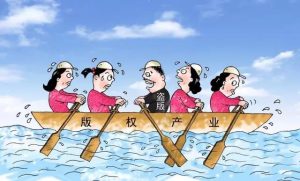China IP Diary #2
During the second half of 2016, National Copyright Administration of PRC (NCAC) and other three authorities (State Internet Information Office, Ministry of Industry and Information and Ministry of Public Security) jointly launched the 2016 Jianwang Operation (hereafter called” JW 2016” and Jianwang means the “sword net”), a campaign aiming to crack down on online infringements. – China IP Diary #2 by Kevin Gao.
JW 2016 primarily targeted at the illegal distribution of internet literature, films, television programs and music works on websites, aggregation platforms and online private theaters. This campaign also aimed to punish the infringers who established private servers for online games and regulated advertising alliance as well as cloud storage providers.
As announced by the NCAC, the results of the JW 2016 are notable. Statistics show that the authorities investigated 514 cases of online copyright infringements, shut down 290 copyright-infringing websites, and issued up to 4.67 million yuan ($672,232) in fines during this campaign. NCAC also transferred 33 cases to the judicial authorities and listed 21 typical cases among them. Meanwhile, the authorities established a white-listing/blacklisting system used for protecting copyrighted works and monitoring infringements. Undeniably, this campaign indicates China’s determination to fight online piracy. However, some problems were reflected in the course of this campaign.
 This campaign was not well-organized. The NCAC, instead of the State Council, played a leading role in this campaign. Such arrangement caused some inefficiency because the NCAC is at the same administrative level of the other three supporting departments, and is not in a position to be the leader.
This campaign was not well-organized. The NCAC, instead of the State Council, played a leading role in this campaign. Such arrangement caused some inefficiency because the NCAC is at the same administrative level of the other three supporting departments, and is not in a position to be the leader.- Activities against online piracy were not institutionalized. By punishing typical online infringements, this campaign mainly sent a warning to certain infringers, but failed to increase the level of awareness among the general public. Therefore, online infringements resumed gradually after the completion of this campaign.
- The scope of the campaign is limited for several reasons. It is not easy to monitor infringing activities conducted in some private theaters or through deep links. Also, it takes time to crack down on websites that have a huge volume of infringing content. For instance, a great number of pirated products are being sold on E-Commerce websites, like Taobao, and numerous copyrighted literary works are being published in document-sharing websites, such as Baidu Wenku without authorization. And it is unrealistic for companies and the authorities to remove and block all of the infringing content from the internet during this campaign.
- China put over-reliance on administrative measures in the protection of online copyright. Alternative approaches, such as industry associations’ self-regulation or right holder’s assertion of rights, did not play a significant role. Furthermore, the precaution of copyright infringement deserves more attention before the infringement instead of the opposite, and over-emphasis on administrative measures is not an effective method to change the society’s concept of remedy after the infringement.
Overall, this campaign has a positive effect on deterring online copyright infringement. However, it is necessary to further improve the JW Operation, explore other approaches and institutionalize all of these in order to create a copyright-protection-oriented online environment which is good for the development of the internet creative industry.
